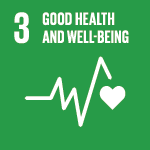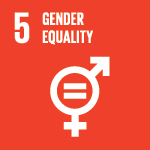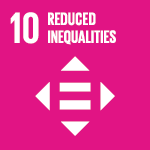Posted in: 06/28/2023
The health of the LGBTQIAP+ population is constantly neglected when we consider that few surveys and analyzes have identified members of the community. In addition, the lack of information creates difficulties in accessing other essential legal services – such as education and even access to the labor market.
In 2019, the Brazilian Institute of Geography and Statistics (IBGE) carried out, for the first time, the National Health Survey: Self-identified sexual orientation of the adult population , where 1.2% of the population declared themselves homosexual and 0.7% declared themselves bisexual . However, in the case of homosexual people, the survey did not distinguish the percentage of gays and lesbians.
The research also pointed out that 1.1% of the population declared not knowing about their sexuality and 2.3% of people refused to answer. The conclusion brought by the publication was that such data may be associated with the fact that people would not yet have known their own sexuality.
In a more assertive version, research carried out by the Faculdade de Medicina de Botucatu, at the Universidade Estadual Paulista (Unesp), in 2021, counted the number of transgender or non-binary people in Brazil. The result pointed out that almost 2% of the Brazilian population declares itself to be transgender or non-binary , which represents 4 million people .
From these recent surveys, it has been possible to have a more detailed and careful look at the creation of public policies and actions that meet the health care of the LGBTQIAP+ population.

As a way to serve this large portion of the population and promote access to essential basic services , there are public policies that, little by little, have reached the LGBTQIAP+ community.
The National Policy for the Comprehensive Health of Lesbians, Gays, Bisexuals, Transvestites and Transsexuals , created in 2011, has a series of strategies and goals for federal, state and municipal administrations in order to promote equal access of the LGBTQIAP+ population to the Unified Health System. Health (SUS) .
But the application of the National Policy still faces barriers to progress, such as the preparation of professionals. A survey carried out by Albert Einstein Hospital, the Faculty of Medicine of the University of São Paulo (USP) and the University of São Caetano do Sul pointed out that access to health is more difficult for people from the LGBTQIAP+ community aged 50 years or more.
The survey pointed out discrepancies in the percentage of tests performed between heterosexual people and LGBTQIAP+ people. More than 70% of heterosexual people interviewed for the survey have already taken preventive exams for cervical cancer . The percentage of LGBTQIAP+ people who underwent the same exam does not reach 40%.
The researchers point out that the data are the result of stereotypes that limit the care of the LGBTQIAP+ community to sexually transmitted infections (STIs). In addition, fear of prejudice prevents part of the population from regularly monitoring and testing.
Therefore, it has been essential to train health professionals to properly welcome and treat the LGBTQIAP+ community. The subject has even gained space in universities , allowing for a more comprehensive training of professionals – who, when they arrive at hospitals and health units, will be able to take care of the health of the LGBTQIAP+ population.



Sign up and receive our news.